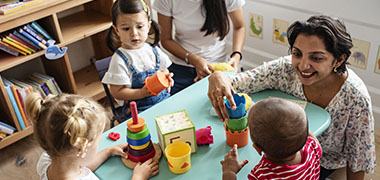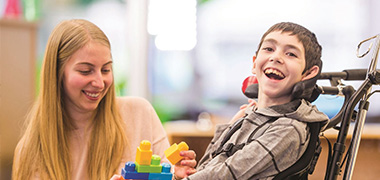
This role has a moderate level of AI exposure. AI can enhance efficiency for some tasks, but this job still relies on human skills and decision-making.
Explore all careersResidential Care Workers support children and adults in various facilities, providing personal services and maintaining close relationships with clients and their families.
Get qualified to work as a Residential Care Worker with a course recognised across Australia. Speak to a training provider to learn more.
Browse occupations related to Residential Care Worker
In Australia, a full time Residential Care Worker generally earns $1,200 per week ($62,400 annual salary) before tax. This is a median figure for full-time employees and should be considered a guide only. As you gain more experience can you expect a higher salary than people who are new to the industry.
 Courses.com.au Team
Courses.com.au Team
Opportunities for Residential Care Workers in Australia are expected to grow very strongly over the next 5 years as more than 179,000 new jobs open up around the country. Residential Care Workers are employed by adult care centres, nursing homes, aged care facilities, group homes, and rehabilitation units.
Source: Australian Government Labour Market Insights
 Courses.com.au Team
Courses.com.au Team
Get started as a Residential Care Worker with a Certificate III in Individual Support, and if you are working with the elderly or disabled you might also consider additional VET qualifications in those areas — try the Certificate IV in Disability or the Certificate IV in Ageing Support. They take about a year to complete. You will also need a current first aid and CPR certificate, and you might also require an up-to-date influenza vaccination and a police check.
 Courses.com.au Team
Courses.com.au Team



Residential Care Workers work at nursing homes, aged care facilities, rehabilitation units, adult care facilities, and group homes. They provide children and adults who are cannot live independently with personal services.
Developing a close relationship with your clients (and their families) is key to your role, and as a Residential Care Worker you could be doing anything from showering, dressing, and feeding your clients — to liaising with immediate family members and keeping them informed of progress and life events.